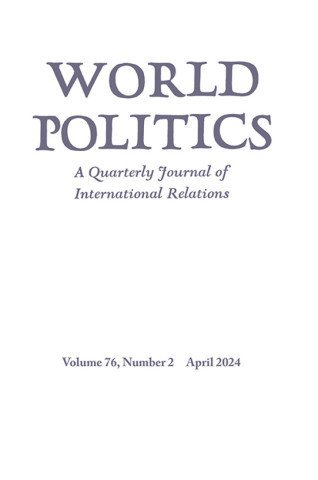Racial Reclassification and Political Identity Formation
IF 2.5
1区 社会学
Q1 INTERNATIONAL RELATIONS
引用次数: 8
Abstract
Abstract This article leverages a phenomenon of racial reclassification in Brazil to shed new light on the processes of identity politicization. Conventional wisdom tells us that race mixture, fluid racial boundaries, and stigmatized blackness lead Brazilians to change their racial identifications—to reclassify—toward whiteness. But in recent years, Brazilians have demonstrated a newfound tendency to reclassify toward blackness. The author argues that this sudden reversal is the unintended consequence of state-led educational expansion for the lower classes. Educational expansion has increased the exposure of newly mobile citizens to information, social networks, and the labor market, leading many to develop racialized political identities and choose blackness. The author develops and tests this argument by drawing on in-depth interview data, systematic analyses of national survey and longitudinal census data, and original survey experiments. This article contributes a novel account of identity politicization and emphasizes the interaction between social structures and citizenship institutions in these processes.种族重新分类与政治身份的形成
本文利用巴西的种族重新分类现象来揭示身份政治化的过程。传统智慧告诉我们,种族混合、不稳定的种族界限和被污名化的黑人导致巴西人改变他们的种族认同——重新分类——转向白人。但近年来,巴西人表现出了一种将自己重新归类为黑人的新趋势。作者认为,这种突然的逆转是国家主导的下层阶级教育扩张的意外后果。教育扩张增加了新流动公民接触信息、社交网络和劳动力市场的机会,导致许多人发展出种族化的政治身份,并选择成为黑人。作者通过深入访谈数据、对全国调查和纵向普查数据的系统分析以及原始调查实验来发展和验证这一论点。本文对身份政治化作出了新颖的解释,并强调了在这些过程中社会结构和公民制度之间的相互作用。
本文章由计算机程序翻译,如有差异,请以英文原文为准。
求助全文
约1分钟内获得全文
求助全文
来源期刊

World Politics
Multiple-
CiteScore
8.40
自引率
0.00%
发文量
24
期刊介绍:
World Politics, founded in 1948, is an internationally renowned quarterly journal of political science published in both print and online versions. Open to contributions by scholars, World Politics invites submission of research articles that make theoretical and empirical contributions to the literature, review articles, and research notes bearing on problems in international relations and comparative politics. The journal does not publish articles on current affairs, policy pieces, or narratives of a journalistic nature. Articles submitted for consideration are unsolicited, except for review articles, which are usually commissioned. Published for the Princeton Institute for International and Regional Affairs
 求助内容:
求助内容: 应助结果提醒方式:
应助结果提醒方式:


